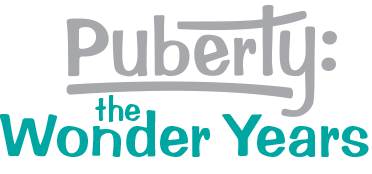If you haven’t already heard about Menstrual Hygiene Day, you might be asking yourself, “Why does something so normal and natural—something that is routinely experienced by half of the world’s population—deserve its very own special day?” Great question!
Menstruation Across the Globe
Across the globe, girls, women, and others who menstruate experience challenges because of their have monthly bleeding. In many countries, menstruation is a taboo topic. Many cultures do not prepare children for the onset of this normal event; others require girls and women to isolate themselves during their monthly bleeding. Even in developed nations, talk about menstruation is frowned upon, and when people are menstruating, they hide it. Girls may face ridicule from their peers, depending on social and cultural norms related to menstruation.
The result of these responses to menstruation is that too many girls miss school because they do not have the resources to manage their monthly bleeding or they don’t have access to private, sanitary facilities. Too many women lose opportunities to reach their full potential because they miss too much school or work during menstruation. On top of these realities is the blanket of silence and taboo that portrays people who menstruate as inferior or somehow tainted. This perpetuates gender inequality and discrimination.
The goal of Menstrual Hygiene Day is to “create a world in which every woman and girl can manage her menstruation in a hygienic way—wherever she is—in privacy, safety, and with dignity.” This will be done when we break the silence and create systems that support people in managing their menstrual hygiene.
- Read more about Menstrual Hygiene Day.
- Learn how Indonesia tackled the issues girls face.
- Read how menstruation affects girls in the United Kingdom.
- Negativity towards menstruation impacts education and costs money.
Menstruation in the United States
Think about your own education related to menstruation. Perhaps you are one of the fortunate few who experienced a very open and shame-free education about the changes of puberty, including menstruation. More often, people tell me that they experienced a silence on the topic of puberty that implied shame or something wrong. Often, I hear stories about a first period being a source of fear or embarrassment.
Schools and families often provide girls with information about menstruation, but leave boys out because “they don’t need to know.” This implies that the subject of menstruation should be kept a secret from boys. How will this promote respect and understanding for others? Most young people will have families of their own someday and will need to know how to support their partners and children who menstruate. Adults can model respect for diversity by discussing menstruation in a supportive and matter-of-fact manner.
Positive Approaches to Menstruation
Having a worldwide menstration hygiene day gives adults an opportunity to raise awareness on the topic. Whether you are a parent, caregiver, or educator, you can promote menstrual health and hygiene by talking about it with the young people in your life. You can model respect and support for those who are menstruating. You can talk about it in a positive and informative manner that eliminates the prevalent aura of shame and stigma. Consider the following ideas for educating all young people about menstruation:
- Read books on menstruation together, or make them available for children to read themselves. Use this book list as a starting point.
- Create a tradition to celebrate the transitions that mark a young person’s steps toward adulthood.
- Create a private celebration of the first menstrual period. Gift that special young person with a special book that combines information and journaling.
- Get guidance for parents and guardians who want to talk to their children about menstruation.
- Ask your school how they teach menstruation.
- Place menstrual products where they are readily available.
Consider using Puberty: The Wonder Years to teach all students about menstruation in a positive way. These lessons specifically teach about menstruation:
- “Puberty in Female-Bodied People”: Lesson 4-5 for grade 4
- “Puberty and the Female Reproductive System” and “Reproduction”: Lessons 5-3 and 5-4 for grade 5
- “How My Body Works”: Lesson 6-3 for grade 6
updated 2024-10-10



